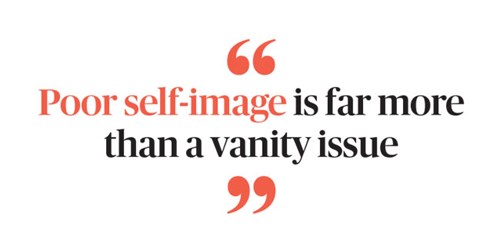Meaghan Ramsey shares what it takes to create signature programs that deliver measurable change
The Dove research is startling. A meager four percent of women think they are beautiful. And this is a far deeper issue than vanity. The research on low body confidence shows it drives absenteeism at work and inhibits performance – and it starts from a young age. Thirty-one percent of teenagers withdraw from classroom debate because they don’t want to draw attention to the way they look.
Their mirror is distorted by pressure from beauty ideals that are deeply ingrained in society, perpetuated by parents, friends, online networks, media and advertising. This was the social dynamic that Dove tapped into. A Unilever brand best known for soap and skin care products, Dove has also been known since 2004 for its counterintuitive advertising. Bucking the narrow definition of beauty represented in the mainstream media (think slim, spotless, white, long-limbed), Dove mounted its “Campaign for Real Beauty” with a radically diverse cast of “real” women. In doing so, it created an object lesson in delivering social value.
Advertising is a powerful means to raise awareness, but Dove saw an opportunity to go further. Launched in 2006, Dove’s Self-Esteem Project delivers education programs for young people to build body confidence and prevent the beauty anxieties that plague women later in life. The plan was to reach 15 million young people by 2015.
From the outset, Dove saw that it couldn’t do it alone. It forged partnerships with academics and NGOs. In 2013, the company announced two global partnerships: with the World Association of Girl Guides and Girl Scouts, helping scale a program to more than 120 countries; and with the University of the West of England to ensure each program was measurably effective in increasing body confidence.

Scaling economically at speed, mobilizing vast networks of volunteers and implementing rigorous, evidence-based programs obviously poses challenges. Succeeding demands a shift, in business mindset and approach, to cross-sector collaboration.
Anchor to the common cause Having a joint vision, a clear common cause, helps all partners contribute what they are best at. Leveraging all of the resources of a business – including its reach, creativity and expertise – creates much greater impact than money alone ever could.
Expect conflict Take the time to understand each partner’s organizational culture. You will have different priorities, language and approaches to goal setting. Explore what is possible, with one eye always on your common cause.
Build in flexibility If you are looking to scale a program, it must be adaptable to multiple languages, customs, cultures and styles without losing fundamental impact.
Manage expectations Most businesses work to a quarterly calendar; volunteers work to their own clock; and academic timescales can be upward of 18 months. Each needs clarity about their role and its relation to the whole.
Lead with ambition Set bold, public commitments. This builds excitement, trust and support, and helps to create and sustain momentum. Advocate for change both publicly and privately. Dove quietly contributes to the scientific body of research by publishing the research it funds. At the same time, it actively champions change, for example, at the UN Commission on the Status of Women.
Today, the Dove Self-Esteem Project has reached 20 million young people around the world: from the US and the Netherlands to China, Brazil, Bangladesh and Rwanda. By fostering critical partnerships, it has become the largest provider of evidence-based education on body confidence in the world, proving that the power of a business to succeed by making a genuine difference to society is both beautiful and real.
Meaghan Ramsey is a Partner in Brunswick’s Business & Society Practice, and based in London. Previously, she led Dove’s global social impact work at Unilever.
Illustration: Adolfo Valle
